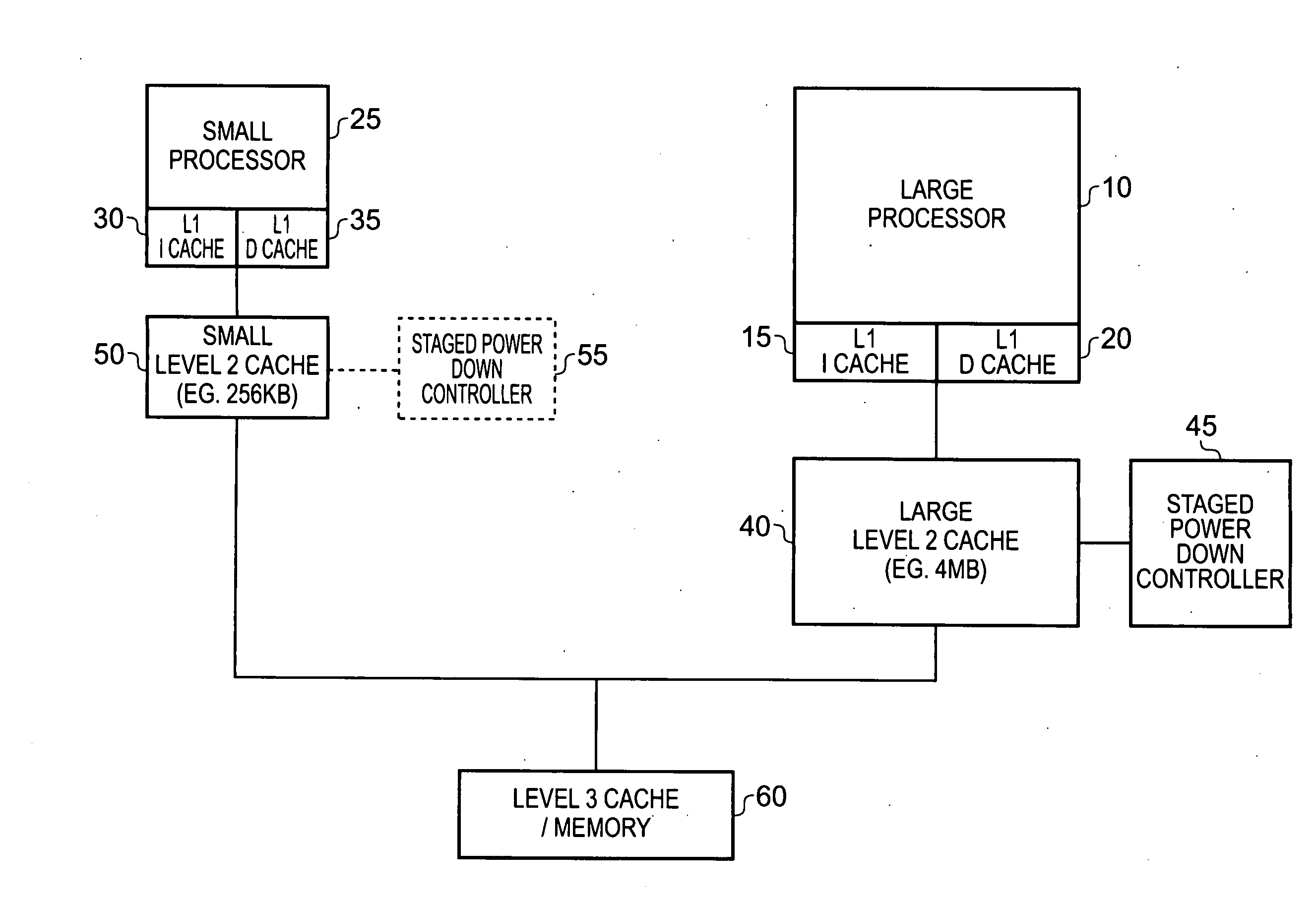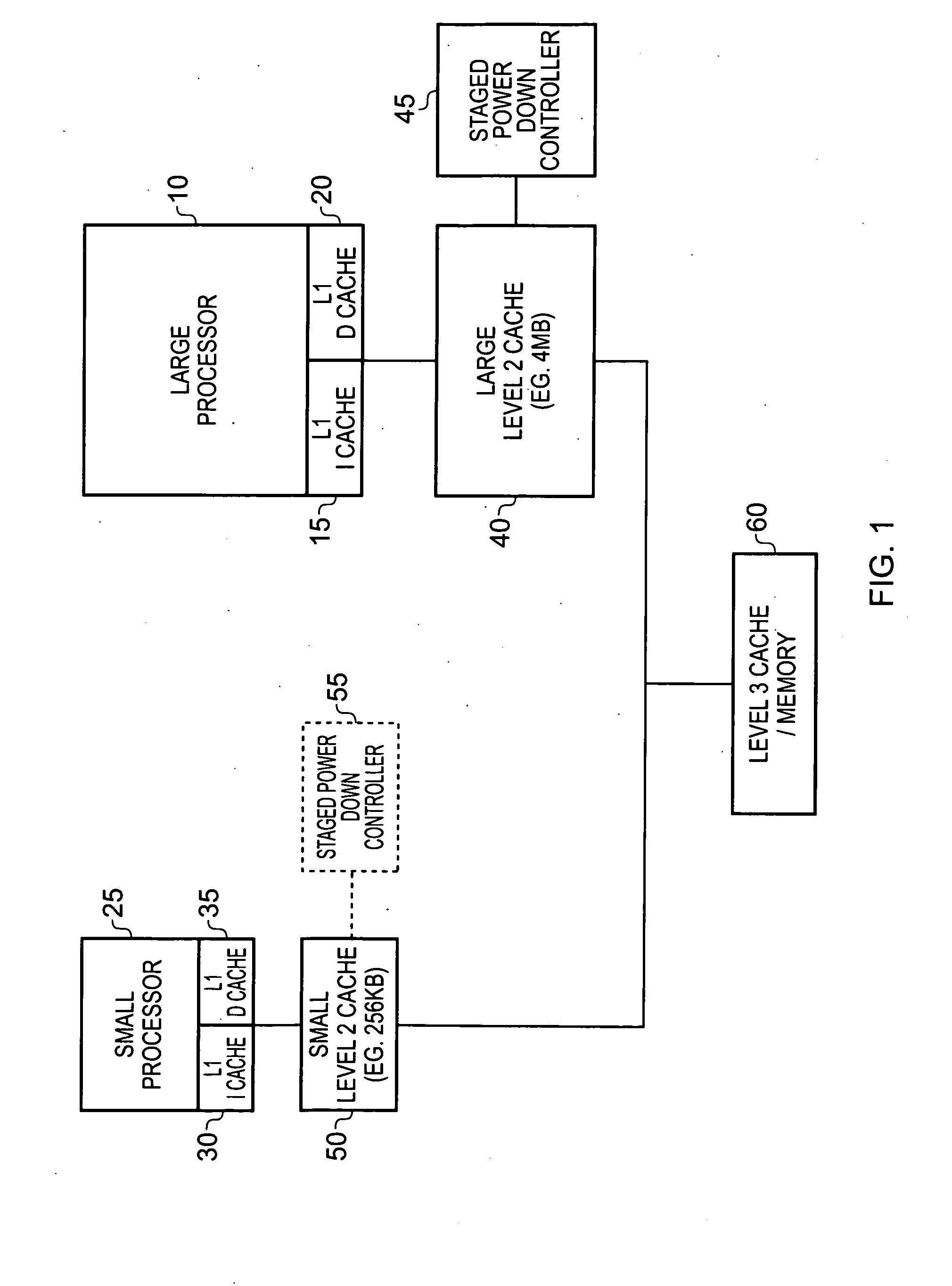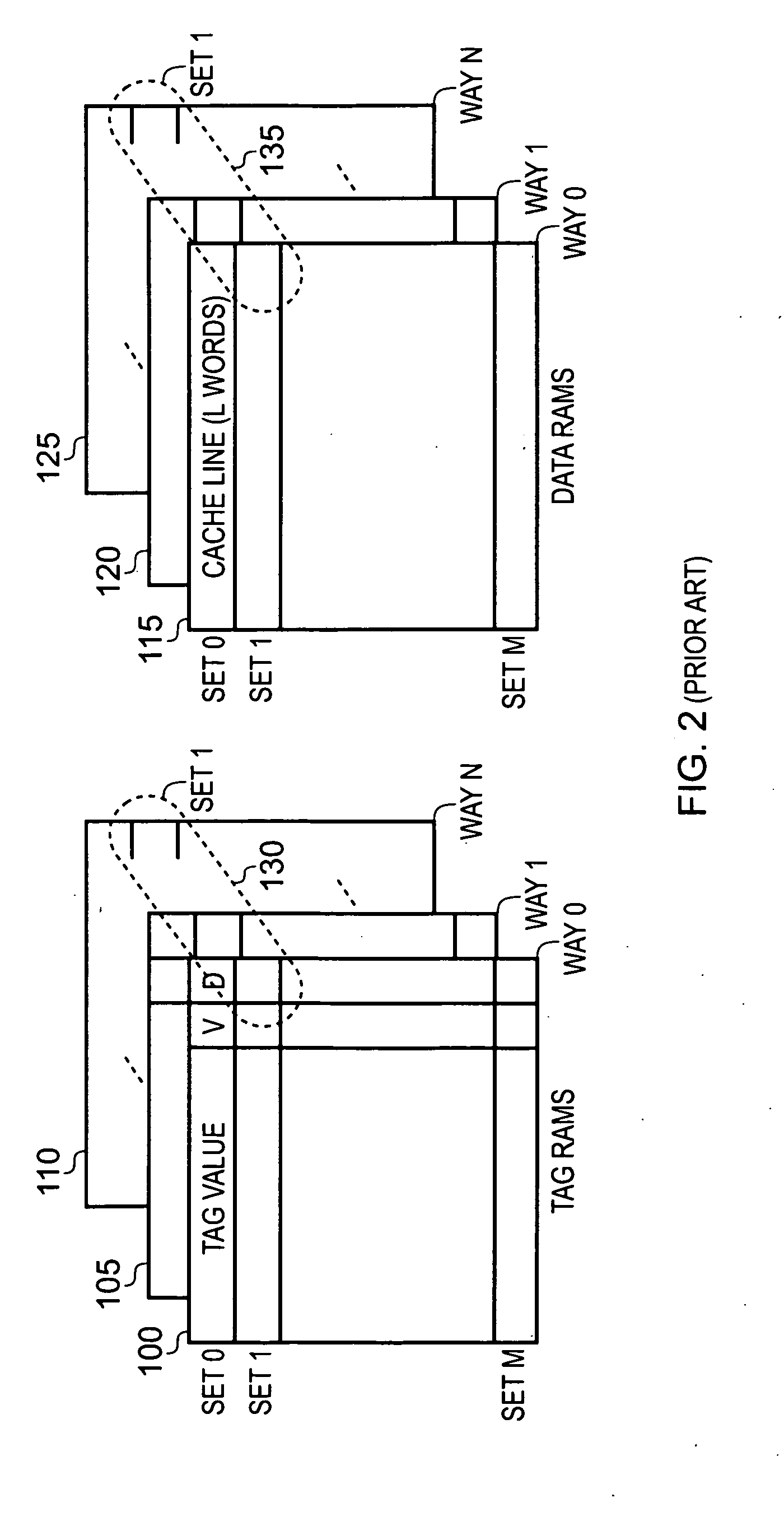Data processing apparatus and method for powering down a cache
a data processing apparatus and cache technology, applied in the direction of memory adressing/allocation/relocation, instruments, sustainable buildings, etc., can solve the problems of difficult to achieve using current techniques, difficult and inability to provide two such separate caches. , to achieve the effect of reducing the size and complexity of the degree of dirty checking circuitry and achieving faster outpu
- Summary
- Abstract
- Description
- Claims
- Application Information
AI Technical Summary
Benefits of technology
Problems solved by technology
Method used
Image
Examples
Embodiment Construction
[0058]FIG. 1 is a block diagram of a data processing system in accordance with one embodiment. The system includes a relatively small, relatively low energy consumption, processor 25 (hereafter referred to as the small processor) and a relatively large, relatively high energy consumption, processor 10 (hereafter referred to as the large processor). During periods of high workload the large processor 10 is used and the small processor 25 is shut down, whilst during periods of low workload, the small processor 25 is used and the large processor 10 is shut down.
[0059]Both processors 10, 25 have their own associated level 1 (L1) instruction cache 15, 30 and L1 data cache 20, 35. In addition, both processors have their own level 2 (L2) caches, the large processor 10 having a relatively large L2 cache 40 whilst the small processor 25 has a relatively small L2 cache 50. In accordance with the illustrated embodiment, the L2 cache 40 has staged power down control circuitry 45 associated ther...
PUM
 Login to View More
Login to View More Abstract
Description
Claims
Application Information
 Login to View More
Login to View More - R&D
- Intellectual Property
- Life Sciences
- Materials
- Tech Scout
- Unparalleled Data Quality
- Higher Quality Content
- 60% Fewer Hallucinations
Browse by: Latest US Patents, China's latest patents, Technical Efficacy Thesaurus, Application Domain, Technology Topic, Popular Technical Reports.
© 2025 PatSnap. All rights reserved.Legal|Privacy policy|Modern Slavery Act Transparency Statement|Sitemap|About US| Contact US: help@patsnap.com



